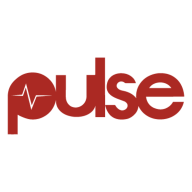By Perpetual Onuegbu
Civil society Legislative Advocacy Centre (CISLAC) has on Tuesday launched six assessments of national implementation of Common African Position on Asset Recovery (CAPAR) .
Speaking at the launch in Abuja, Auwal Rafsanjani, Executive Director CISLAC, said Asset Recovery has been a key part of CISLAC’s advocacy and anti- corruption efforts over the years.
He said CAPAR is a milestone in the African Union’s approach to the recovery of assets stolen from the continent.
“It sets out international, regional and national recommendations to enhance asset recovery.
“Adopted by the African Union in February 2020, CAPAR is a policy framework supporting the recovery and repatriation of African assets illicitly moved to foreign jurisdictions.
“The framework provides national and continental-level guidelines for identifying, reclaiming, and managing recovered assets in a manner that upholds African sovereignty.
“CAPAR is recognized as essential to strengthen domestic and cross-border recovery efforts within Africa.
‘CAPAR sets out its recommendations across four pillars:Detection and Identification of Assets,
Recovery and Return of Assets, Management of Recovered Assets, Cooperation and Partnerships,” he said.
Explaining futher he said CAPAR Civil Society Network, supported by Transparency International Secretariat (TI-S), has developed an assessment tool to monitor national implementation of CAPAR across Africa and under each of these four pillars.
“This tool evaluates national CAPAR components through a matrix and indicator system, using a traffic light rating system to provide clear, actionable insights for each CAPAR commitment.
“Six assessments were carried out in 2023-2024 to pilot the tool and provide a first round of analysis of CAPAR implementation.
“These covered countries across different regions, legal systems and languages: Côte d’Ivoire, Equatorial Guinea, Kenya, Morocco, Madagascar, and Nigeria.
“According to Lewis Kundai, Effective implementation of CAPAR across AU Member States promises to reinforce asset recovery efforts, enabling both domestic and international retrieval of corrupt proceeds.
“By fostering robust systems at national and continental levels, CAPAR advances governance reforms, enhancing transparency, accountability, and public participation.
“The CAPAR Assessment Tool is designed to clarify priority reforms for all stakeholders, offering a comparative framework that encourages governments to strengthen their implementation over time,”Rafsanjani said.
Speaking on efforts made by Nigeria on assets recovery, the CISLAC boss said Nigeria had significantly contributed to asset recovery challenges in Africa and the West African sub region.
“The country has established alliances with other nations, to guarantee a unified African effort to retrieve and repatriate assets to the continent. According to the report, Nigeria has recovered over 5 billion USD over the last 25 years.
“There is also still more work to be done in terms of engaging citizens and civil society, particularly considering the absence of frameworks such as whistleblower protection channels that will enable citizens to disclose issues on corruption.
“So the effort today is to see how we can have more collective position and views to ensure that assets that are supposed to be recovered are fully recovered without having the obstacles, without having the legal challenges that we have.
‘We need concerted efforts, cooperation, and advocacy, we need collaboration with the various government agencies abroad and also the Nigerian government in advocating for the return of assets to Nigeria.”
Also speaking at the launch, Vaclav Prusa, an anti-corruption crusader and author of the report called on policymakers and journalists to advocate for transparency, and driving accountability.
“We urge you to champion reforms in asset management practices, support the publication of accessible reports, and promote inter-agency coordination to ensure Nigeria’s asset recovery efforts reach their full potential.
‘Nigeria’s asset recovery efforts do not just benefit Nigeria—they set a precedent for West Africa and the broader continent.
“Successful frameworks and legislative reforms in Nigeria could inspire similar actions in neighboring countries, making asset recovery a cornerstone of economic justice across Africa,” Prusa said.(NAN)









No comments:
Post a Comment